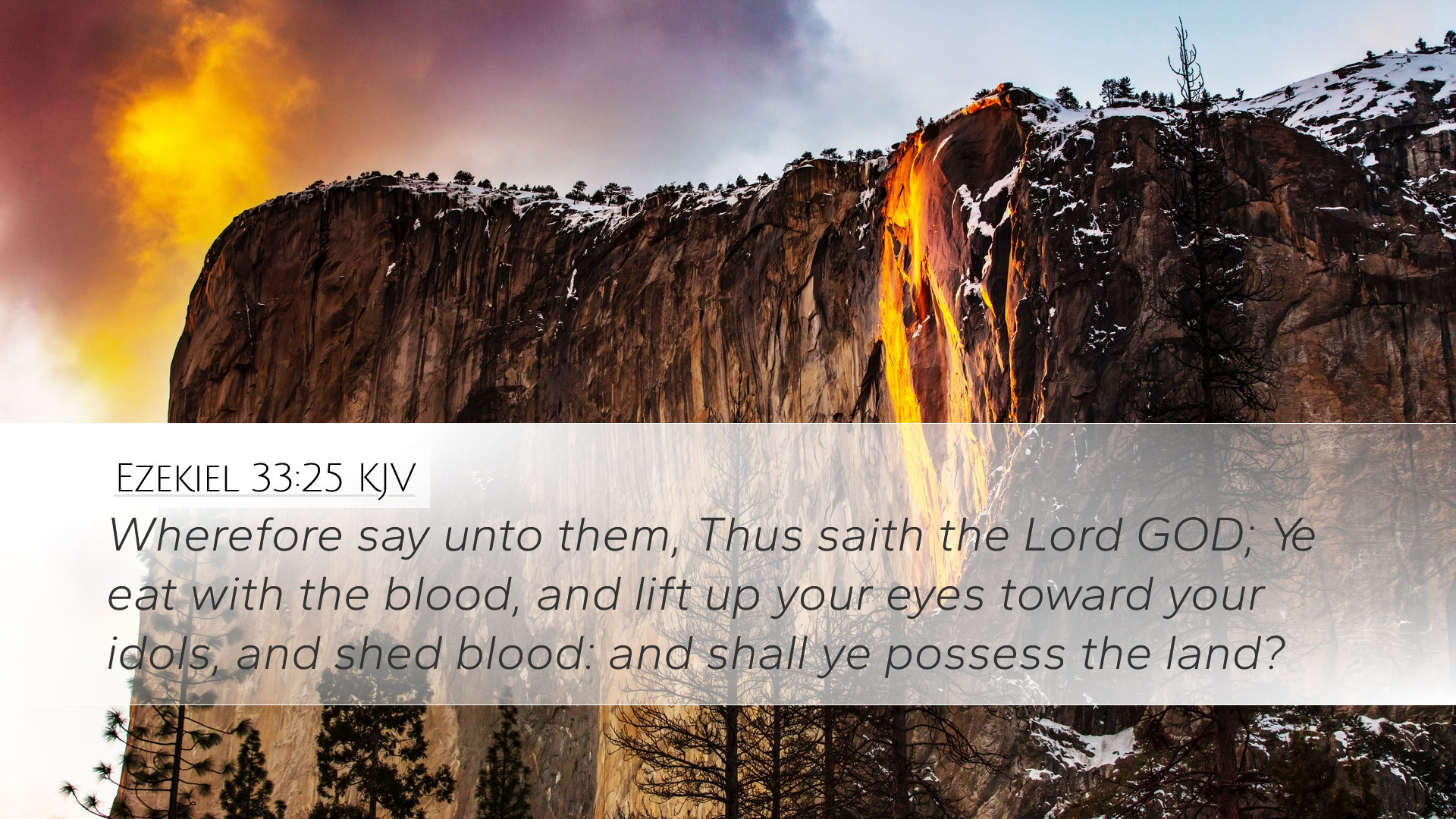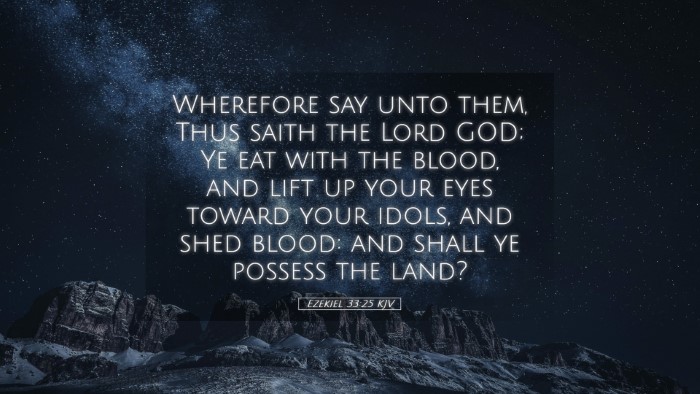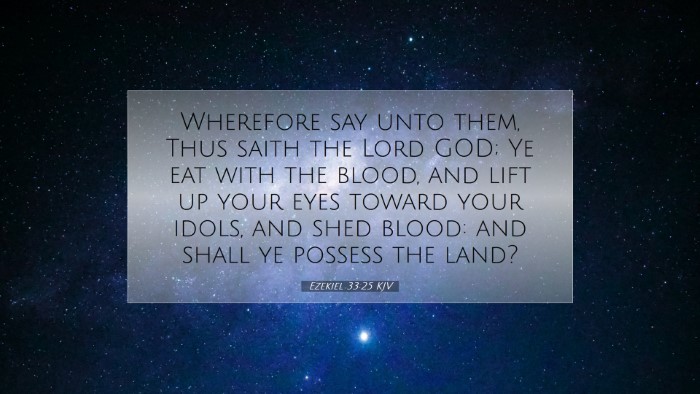Ezekiel 33:25 Commentary
Bible Verse: Ezekiel 33:25 - "Therefore say unto them, Thus saith the Lord GOD; Ye eat with the blood, and lift up your eyes toward your idols, and shed blood: and shall ye possess the land?"
Context and Background
Ezekiel, a prophet during the Babylonian exile, speaks to the Israelites, addressing their moral and spiritual failures. The focus of chapter 33 is on the responsibility of both the watchman and the people regarding their conduct and the consequences of their actions.
Analysis of Ezekiel 33:25
This verse encapsulates the spiritual plight of the Israelites. Their practices, as described by Ezekiel, are a direct violation of God's commandments. Let us explore the significant components of this verse from various public domain commentaries.
Matthew Henry's Commentary
Matthew Henry highlights the grave nature of the Israelites' actions. The phrase "Ye eat with the blood" refers to the practice of consuming meat with blood, which was strictly prohibited in the Mosaic Law (Leviticus 17:10-14). This symbolic gesture points to a deeper spiritual corruption—disregarding God’s commands leads to a corrupted worship style filled with idolatry. Henry notes that their lifting "up your eyes toward your idols" exemplifies their disloyalty to God, indicating that their hearts were divided. They could not expect to possess the land while engaging in such sinful conduct.
Albert Barnes' Notes
Albert Barnes emphasizes the consequences of sin depicted in this verse. He points out that the Israelites engaged in idolatry and bloodshed, actions that provoke divine judgment. Barnes observes that the land possessive promises are contingent upon faithfulness to God’s covenant. The idea that they might claim the land while remaining unfaithful is folly. He elaborates that God’s declarations serve as a warning, reflecting not only their physical state but also their spiritual destitution.
Adam Clarke's Commentary
Adam Clarke delves into the cultural implications of bloodshed and idolatry in ancient Israel. He remarks that the act of eating with blood signifies a covenant with death and a refusal to acknowledge the true God. Clarke underscores the seriousness of the sin committed; the Israelites sought to gain favor and prosperity while violating God’s laws. He informs us that such transgressions lead to stagnation and divine judgment, ensuring that without repentance, they cannot possess the promised land—a clear reference to the covenant with Abraham, which was conditional on fidelity to God.
Theological Reflections
The reflections from these commentaries yield significant theological insights relevant to today's believers:
- Idolatry and Disloyalty: The ongoing challenge of idolatry exists in modern contexts, where priorities can easily shift away from God. The admonishment in Ezekiel invites believers to consider their own allegiances and the implications of divided devotion.
- Divine Justice: Ezekiel’s warnings reflect God's unchanging nature concerning sin. The assurance of possessing the land mirrors the New Testament’s promise of eternal life, which is conditioned upon faithfulness and repentance.
- Responsibility: Just as Ezekiel acted as the watchman, pastors and leaders today are called to warn their congregations of the dangers of sin and the importance of adhering to scriptural truths.
- Repentance: The path forward for both the Israelites and modern believers lies in acknowledging sin, repenting, and returning to God—a theme that resonates across Scripture.
Conclusion
Ezekiel 33:25 serves as a poignant reminder of the seriousness of spiritual fidelity. Through the insights of Henry, Barnes, and Clarke, contemporary readers gain a deeper understanding of the consequences of disobedience and the grace available through repentance. This verse urges pastors, students, theologians, and scholars alike to reflect upon their lives, cherish their relationship with God, and lead others by example. The message of Ezekiel transcends time, echoing a call to holiness and commitment to God's covenant promises.


